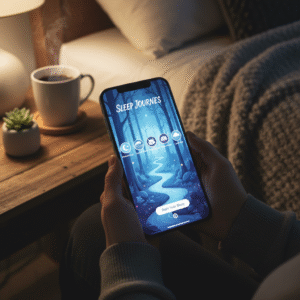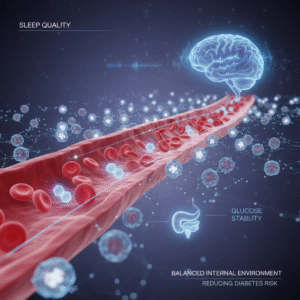Need better sleep? Discover how night wakenings fragment sleep, impacting attention & mood as much as severe sleep loss. Learn coping strategies here.
The Comparison: Infant Care vs. Call Duty
Just as new parents face constant interruptions, medical professionals on call experience similar nightly disruptions. Even brief awakenings—lasting only five to ten minutes—can shatter a crucial sleep cycle intended for restoration. This comparison highlights how common fragmented sleep is among specific populations and underscores its potential severity.
The Science Behind Fragmented Sleep Impact
Dr. Avi Sadeh, lead author of a Tel Aviv University study, spearheaded research to quantify this impact. The study monitored college students’ alertness after simulated on-call nights involving multiple phone interruptions. These brief wake episodes significantly impaired their ability to concentrate and negatively affected their mood the following morning. This controlled test provides concrete evidence that the cognitive downsides of fragmented sleep are substantial.
The Invisible Toll: Understanding Sleep Cycles\nWhile each individual awakening might be fleeting, the interruption of deep sleep and REM (rapid eye movement) phases—which are vital for mental restoration and emotional processing—can have a much larger impact. Repeated disturbances prevent the body from completing necessary sleep cycles, leading to daytime fatigue, difficulty focusing, and irritability despite potentially meeting traditional sleep duration requirements. Think of it as interrupting a multi-course meal multiple times; the quality and satiation are diminished, regardless of the total eating time.
Coping Strategies: Mitigating Fragmented Sleep
Even with unavoidable interruptions, you can protect your remaining sleep quality. Techniques like using white noise can help mask environmental disturbances, mitigating the impact of unexpected awakenings. For parents, however, the challenge often requires accepting that their primary goal shifts from achieving deep, uninterrupted rest to simply maintaining basic functionality until the infant’s sleep patterns stabilize.\n\nThe Importance of Remedy (Addressing Apnea)
Separately but related: Obstructive Sleep Apnea (OSA) often causes significant disruptions, sometimes much worse than simple infant cries. If you suspect OSA, resources like the Home Sleep Apnea Test (HSAT) [link to relevant page] are available to assess sleep quality and guide potential treatments. Addressing OSA can drastically reduce nighttime awakenings.
Real-Life Scenarios for Better Sleep Understanding
Parents and on-call workers aren’t the only ones wrestling with split sleep. Imagine studying for an exam late at night, punctuated by phone notifications. Or someone sharing a bed with a restless partner—missing out on restorative sleep even if they spend the required 7-9 hours in bed. Each scenario illustrates how readily sleep fragmentation occurs.
Seeking Professional Help If poor sleep quality persists, it might indicate an underlying sleep disorder affecting sleep continuity. Conditions like sleep disorders requiring further investigation can be evaluated through options like a Sleep Study [link to relevant page], offering insights into your unique sleep challenges and potential management strategies.
Conclusion
The research confirms what many sleep-deprived individuals already suspect: brief, repeated awakenings during the night drastically impair cognitive function and mood, effects nearly matching severe sleep deprivation. Acknowledging the significant impact of fragmented sleep is crucial for parents, caretakers, shift workers, and anyone regularly disrupted. While immediate solutions might be limited in some situations, understanding the consequences can prompt adjustments for better rest.
Frequently Asked Questions
How does sleep fragmentation compare to full sleep deprivation?
Research, such as a Tel Aviv study, shows that fragmented sleep (multiple brief awakenings) significantly impairs attention spans and mood as much as staying awake for several hours, despite similar total sleep time.
Who experiences fragmented sleep?
Frequent victims include parents of infants, who endure numerous night wakenings, as well as medical on-call personnel and others facing sleep interruptions due to external factors or conditions like OSA.
Sources
- Fragmented Sleep Effects: https://www.healthline.com/health/sleep/fragmented-sleep
- Sleep Deprivation Comparison: https://www.nih.gov/news-events/nih-research-may-be-helping-to-solve-young-people-s-difficulty-sleeping-well-at-night
- Obstructive Sleep Apnea Overview: https://www.cdc.gov/sleep/about/index.html








